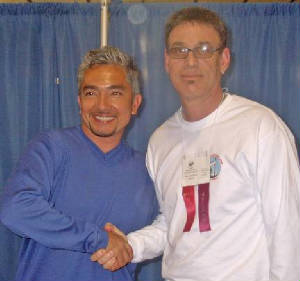It is important when we train dogs not to just pick tricks that we think will be fun to show off or practice. While these have their place, every breed of dog has a unique disposition and personality. This means that training your dog using techniques or tricks that are fun for them can be far more beneficial in the long run.
One of our winning strategies at Chicago Dog Trainer is to allow your dog to be who they are, and this means letting them be the breed of dog that they are. Many breeds have behaviors or drives that make them fantastic at one form of training or another. Some dogs are herders, others love to dig, and some just want to run and retrieve. Understanding our different dog breeds and their tendencies is an essential part of promoting the best behavior for the dog possible. This in turn will allow your dog to be the most happy and comfortable possible.
Your German Shepherd Is Ready to Be Themselves
There are few other breeds of dog that carry the reputation for discipline and loyalty that German Shepherds do. German Shepherds are prone to both hard work and fast learning, which means they can be trained not only quickly but also at a high level. Because of these traits, German Shepherds tend to be athletic, caring, and incredibly smart dogs.
This also means that German Shepherds need to be trained and trained correctly or they will become mentally frustrated and bored. Thankfully a tired dog is a happy dog, and German Shepherds are more than willing to work and train until they are quite tired. A few things about German Shepherds to keep in mind when you are preparing their training routine:
- German Shepherds Have Breed Specific Behaviors – As their name implies, German Shepherds were bred to guard the Shepherd and their sheep as well as assist in herding the sheep during the day. Because of this, your German Shepherd is likely to stick by your side quite closely, and be at the ready for a training session whenever you are.
- German Shepherds Aren’t Human, they are a Reflection of Our Training – We often personify our own emotions or feelings onto our dogs. While this tendency can often be revealed to be true, as German Shepherds are prone to picking up on their owner’s feelings, ultimately their behavior will be dictated by how well we’ve trained them. Without training, a German Shepherd will act on their natural instincts. The quality of our training is what is going to decide that dog’s behavior.
- German Shepherds Can’t Talk, but They Can Understand – Your body language and tone must be consistent when training a German Shepherd. Short and sweet vocal training can often be more effective than using full phrases. On top of this, keeping a consistent tone and volume is key, as any alteration can confuse or change your dog’s understanding of the cue.
Like any dog, you’ll want to start your German Shepherd off slow and increase difficulty of their training as you go. That’s why cues like “sit” or “lay down” should be the first things our German Shepherds learn. Though it is an instinctual trick they will learn easily, these simple orders can slowly be made more difficult over time to increase your German Shepherds discipline and obedience.
Your German Shepherd is prone to being quick, caring, and incredibly insightful if you train them that way. You don’t need to be a shepherd with sheep to protect, you only need a bag of treats, a leash, and a little patience. As consistency is always important when handling a more attentive and energetic breed of dog, a professional trainer or training class can also a fantastic idea for your German Shepherd, if only to develop a good foundation for both you and them.





